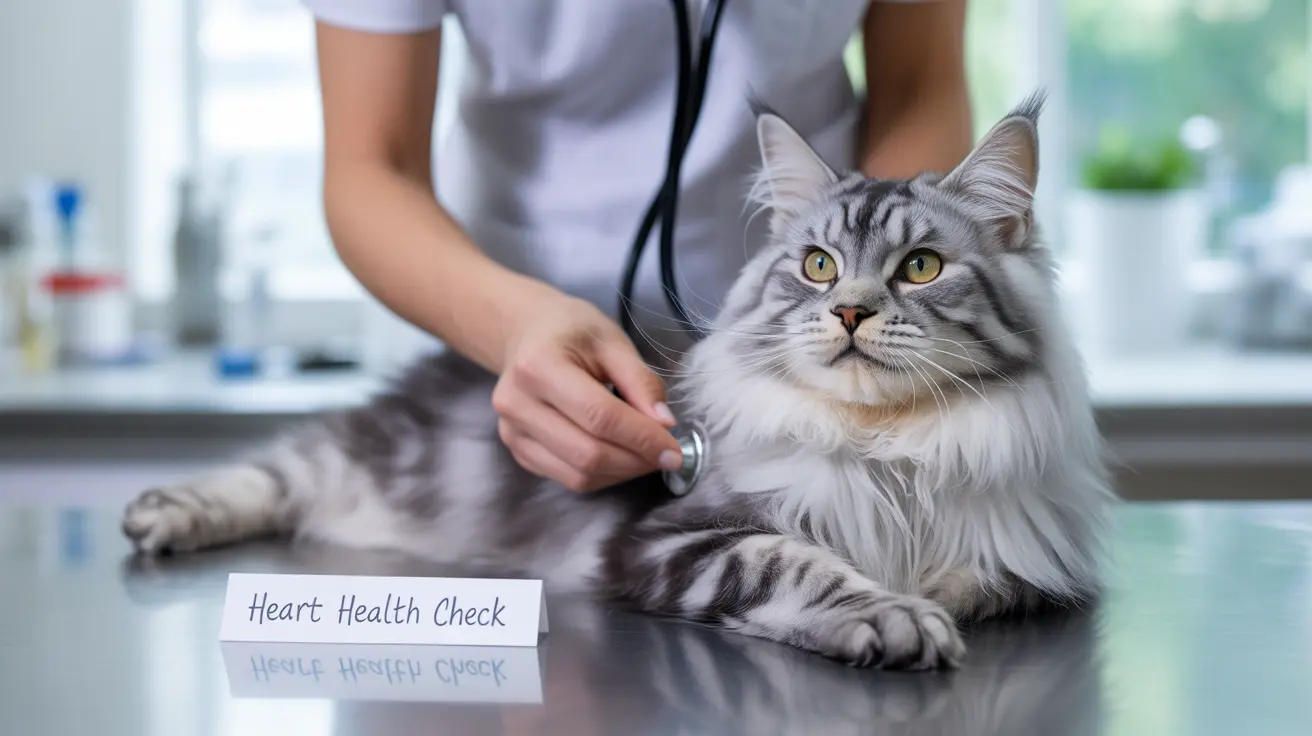Maine Coon cats, beloved for their majestic appearance and gentle personalities, require specific health considerations to ensure they live long, healthy lives. As one of the largest domestic cat breeds, these gentle giants face unique health challenges that every Maine Coon parent should understand and monitor.
In this comprehensive guide, we'll explore the most common health issues affecting Maine Coons, discuss preventive measures, and provide expert insights on maintaining your feline friend's wellbeing. Whether you're a new Maine Coon owner or considering adding one to your family, this information will help you provide the best possible care for your cat.
Common Genetic Health Conditions
Hypertrophic Cardiomyopathy (HCM)
Hypertrophic Cardiomyopathy is the most significant genetic health concern for Maine Coons. This heart condition causes the heart muscle to thicken, reducing its efficiency in pumping blood. Early detection through regular cardiac screenings is crucial, as symptoms may not be visible until the disease has progressed significantly.
Spinal Muscular Atrophy (SMA)
This inherited condition affects approximately 4% of Maine Coons. SMA causes progressive muscle weakness, particularly in the hind legs. While not life-threatening, affected cats require special accommodations and care to maintain their quality of life.
Skeletal and Joint Issues
Hip Dysplasia
Maine Coons' large size makes them particularly susceptible to hip dysplasia. This condition occurs when the hip joint doesn't develop properly, leading to arthritis and mobility problems. Regular weight management and appropriate exercise can help minimize the impact of this condition.
Patellar Luxation
Some Maine Coons develop patellar luxation, where the kneecap regularly dislocates from its normal position. While less common than hip dysplasia, this condition can significantly affect a cat's mobility and comfort level.
Kidney and Urinary Health
Polycystic Kidney Disease (PKD)
PKD is an inherited condition causing multiple cysts to form in the kidneys. Early genetic testing can identify cats at risk, allowing for proactive management through diet and medical intervention when necessary.
Dental and Digestive Health
Stomatitis and Dental Disease
Maine Coons can be prone to severe oral inflammation and dental issues. Regular dental care, including brushing and professional cleanings, is essential for preventing these painful conditions.
Weight Management
Due to their large frame, Maine Coons can easily become overweight, leading to diabetes and joint problems. A balanced diet and regular exercise are crucial for maintaining healthy body weight.
Preventive Care and Management
- Schedule regular veterinary check-ups (at least twice yearly)
- Implement a proper dental hygiene routine
- Monitor weight and adjust diet accordingly
- Provide regular exercise opportunities
- Consider genetic testing for inherited conditions
Frequently Asked Questions
What are the most common genetic health issues in Maine Coon cats, and how can I find out if my cat is at risk?
The most common genetic health issues include HCM, SMA, and PKD. Genetic testing through your veterinarian can identify if your cat carries these conditions. Additionally, regular health screenings, including echocardiograms for HCM, can help detect problems early.
How do I recognize the early signs of Hypertrophic Cardiomyopathy (HCM) in my Maine Coon, and what preventive measures can I take?
Early signs of HCM may include lethargy, difficulty breathing, or reduced activity levels. Regular cardiac screenings starting at a young age are the best preventive measure. If HCM is detected, your vet can prescribe appropriate medications and lifestyle modifications.
What lifestyle and diet changes can help prevent obesity and diabetes in Maine Coon cats, given their large size and appetite?
Feed measured portions of high-quality cat food specifically formulated for large breeds. Encourage exercise through interactive play sessions, cat trees, and puzzle feeders. Monitor weight regularly and adjust portions as needed.
Are there specific dental care routines recommended for Maine Coons to avoid common oral health problems?
Regular tooth brushing (2-3 times weekly), dental treats, and annual professional cleanings are recommended. Start dental care routines early to acclimate your cat to oral hygiene practices.
How often should Maine Coon cats have veterinary check-ups to catch and manage hereditary conditions like PKD or hip dysplasia early?
Maine Coons should have veterinary check-ups every 6 months. Young cats should be screened for genetic conditions, while older cats need regular monitoring for age-related issues. Annual blood work and physical examinations are essential for early detection of health problems.
Conclusion
Understanding and monitoring Maine Coon health issues is crucial for ensuring these magnificent cats live long, healthy lives. Through regular veterinary care, proper nutrition, and attention to potential health concerns, you can help your Maine Coon thrive. Remember that early detection and intervention are key to managing many common health conditions effectively.






